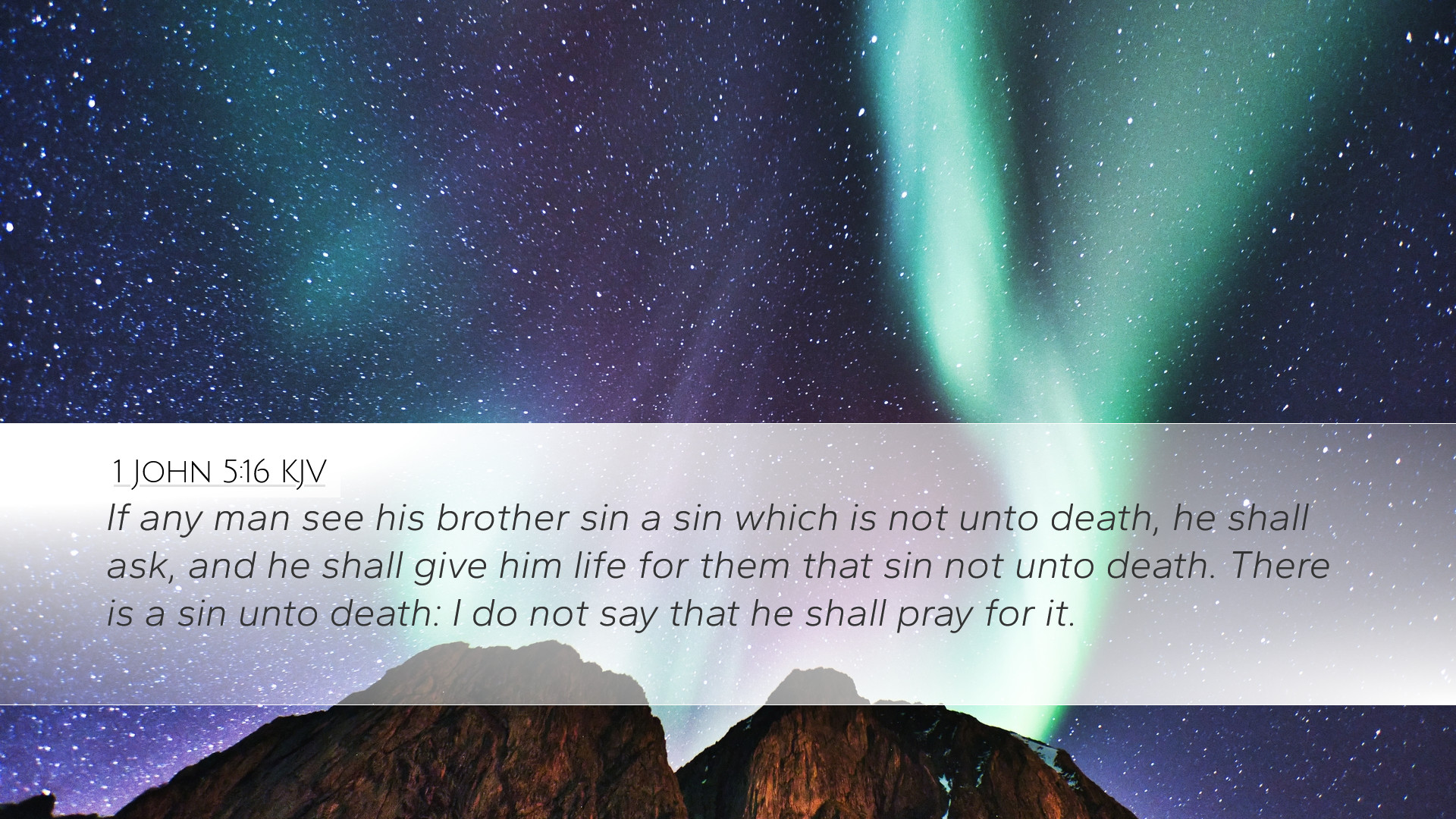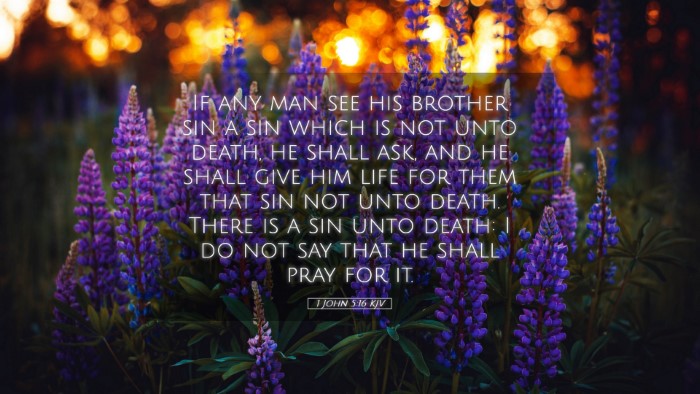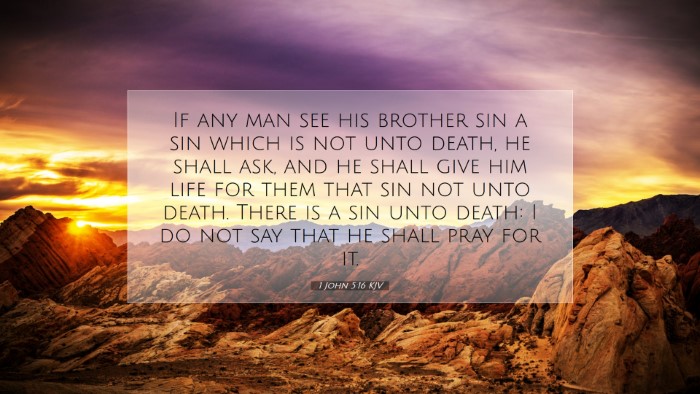Old Testament
Genesis Exodus Leviticus Numbers Deuteronomy Joshua Judges Ruth 1 Samuel 2 Samuel 1 Kings 2 Kings 1 Chronicles 2 Chronicles Ezra Nehemiah Esther Job Psalms Proverbs Ecclesiastes Song of Solomon Isaiah Jeremiah Lamentations Ezekiel Daniel Hosea Joel Amos Obadiah Jonah Micah Nahum Habakkuk Zephaniah Haggai Zechariah Malachi1 John 5:16
1 John 5:16 KJV
If any man see his brother sin a sin which is not unto death, he shall ask, and he shall give him life for them that sin not unto death. There is a sin unto death: I do not say that he shall pray for it.
1 John 5:16 Bible Commentary
Commentary on 1 John 5:16
Verse: "If anyone sees his brother sinning a sin which does not lead to death, he will ask, and He will give him life for those who commit sin not leading to death. There is sin leading to death. I do not say that he should pray about that."
Contextual Overview
This verse falls within the closing exhortations of John's epistle, where he emphasizes the importance of love, belief in Christ, and the assurance of eternal life. John highlights the role of prayer, intercession, and the gravity of sin in the life of believers. The distinctions between types of sin in this verse prompt rigorous theological reflection.
Theological Insights
Matthew Henry's Commentary:
- Intercessory Prayer: Henry emphasizes that the believer's prayer can avail much, especially for those who err in ways not leading to spiritual death, showcasing God's mercy and willingness to restore the wayward.
- Sin Leading to Death: The "sin leading to death" refers to a state where a person persistently rejects the truth of God and His salvation, an act that ultimately cuts off relationship with God.
- Encouragement for Community: Believers should be concerned for one another, engaging in prayer and support for restoration rather than condemnation.
Albert Barnes' Commentary:
- Clarification of Sin Types: Barnes draws attention to the distinction John makes between sins that are recoverable and those that suggest a complete rejection of faith. The 'death' he refers to symbolizes a spiritual demise that cannot be undone by prayer.
- Nature of God’s Grace: He notes that the prayer for a sinning brother reflects the overarching grace of God, who desires all to be saved, thus encouraging active intercession.
- Concerning the Death of the Sinner: Barnes states that the apostle does not provide specifics about what constitutes "sin leading to death," suggesting that various interpretations exist, yet maintains that it is significant to understand its implications for fellowship with God.
Adam Clarke's Commentary:
- Meaning of ‘Brother’: Clarke highlights that when John speaks of "his brother," it indicates a fellow believer, underscoring the communal aspect of Christian spirituality.
- Practical Application of Prayer: He emphasizes that believers must be proactive in prayer, but discern the gravity of certain sins when choosing to engage in intercession.
- Definitions and Consequences: Clarke provides detailed analysis of what might constitute a "sin leading to death," emphasizing a willful and unrepentant heart that contradicts the nature of a living faith.
Key Themes
- The Role of Prayer: The verse serves as an exhortation to active engagement in prayer for others, grounded in faith and concern for spiritual health.
- The Importance of Community: It brings to light the necessity of communal accountability, emphasizing that spiritual well-being is interconnected among believers.
- Consequences of Sin: Understanding the nature of sin and its consequences is critical; recognizing that some actions may constitute a break in fellowship with God marks a serious spiritual threshold.
Conclusion
1 John 5:16 compels believers to engage with one another with compassion and prayerful vigilance. It prompts serious examination of sin and encourages a community of support rather than one of judgment. By seeking understanding in the distinctions of sin as articulated by John, believers are called to embody the love of Christ and serve as intercessors for their brothers and sisters in faith.
This verse serves as a profound reminder of the balance between grace and accountability, and the ultimate calling to foster an environment where restoration is possible within the body of Christ.


